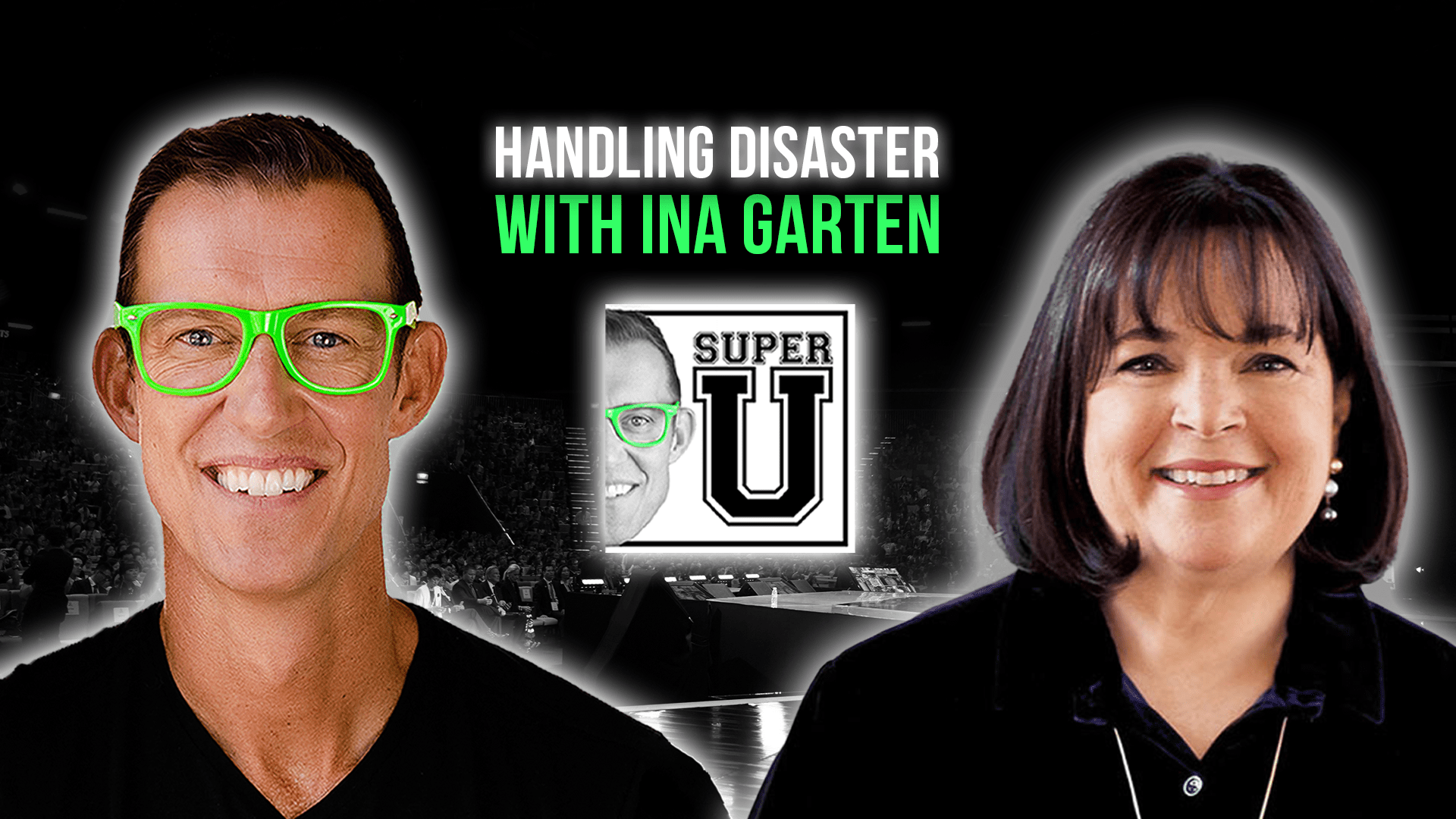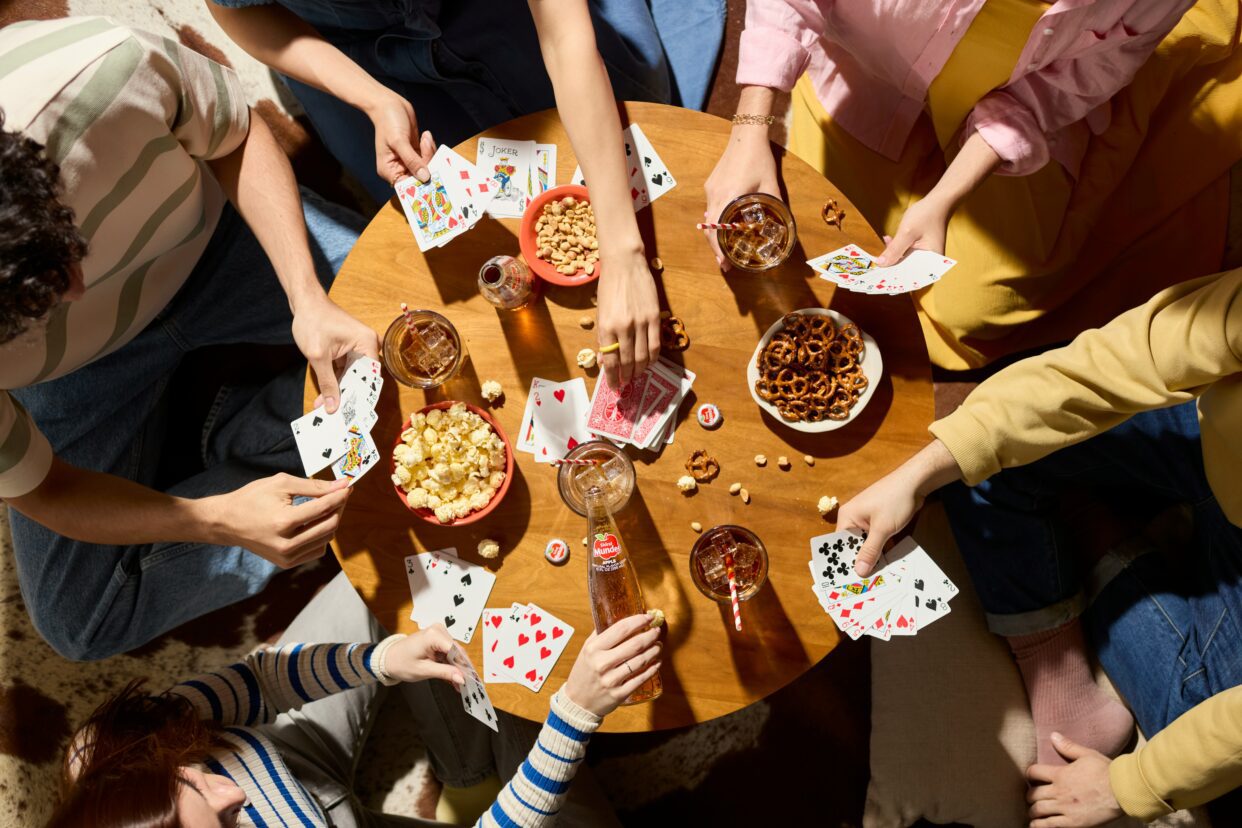Handling Disaster with Ina Garten
“Fun is the most important. If you do stuff for money, it never works out.” is just one of many gems from today’s guest, Ina Garten. Garten is an American author, host of the Food Network program Barefoot Contessa, and a former staff member of the Office of Management and Budget. Her culinary career began with her gourmet food store, Barefoot Contessa; Garten then expanded her activities to many best-selling cookbooks, magazine columns, and a popular Food Network television show. Equalman and Garten discuss changing career lanes, finding your passion, being your own customer, and the importance of taking a break to figure out what’s next.
5x #1 Bestselling Author and Motivational Speaker Erik Qualman has performed in over 55 countries and reached over 50 million people this past decade. He was voted the 2nd Most Likable Author in the World behind Harry Potter’s J.K. Rowling.
Need a sneak peek? Below are the main takeaways from the episode.
Handling Disaster with Ina Garten
Tip #1
“Well, I was working in the White House in nuclear energy policy, writing the budget for enriched uranium programs, and thinking, life’s gotta be more fun than this. And I saw an ad for a business for sale in the New York Times. And it was a specialty food store in a place I’d never been it was in the Hamptons. And I went home that night. And I said to my husband, Jeffrey, I’ve got to do something else. And he gave me such great advice. He said, Pick something that you think would be fun. Don’t worry about whether you make money at it. If it’s going to be fun. If it’s fun, you’ll be really good at it. And I said, you know, funny, you should mention it. I saw this ad for a business for sale. And he said, let’s go look at it tomorrow. And we did we drove up to it was a lemon Westhampton, and I saw this little tiny little store. And it was they were baking cookies. And I thought this is right where I want to be. And I made the woman at low offer thinking, well, I’ll go back, we’ll negotiate. I’ll have time to think about it. And the next day in my office, she called me and said, thank you very much. I accept your offer. And I just went, Oh, shit.”
Tip #2
“I met someone years ago who was a therapist who specialized in finding people helping people find the career they should be in. And I said, What do you tell people? What do you tell them? And she said I asked them to think about what they used to do when they were 10. And I thought, because that’s what you did before they should do this, or I’m supposed to do that. That’s what you just love to do. And you know, hopefully, you can find I met somebody who said, Yeah, I used to like to watch movies when I was 10. And then she thought, well, I could never find a career watching movies. And she turned out to be the movie critic for The Pittsburgh newspaper. I was trying to get into the kitchen and my mother wouldn’t let me so it’s that barrier that really appealed to me.”
Tip #3
“So it’s home cooking that I’m really interested in. You know, when I first started I would do like veal with morels in the store and nobody would buy it. And then I remember putting out a huge platter of chicken that had fresh herbs on the platter it looked just gorgeous. Nobody bought one of them. So I took the platter, I went back into the kitchen, and I came out with chicken in those little red paper cups that you put french fries in and lined them up on the counter, and they just flew out of the store. So I thought okay, it’s about home cooking. And so what I like to do is go to specialty food stores, and but it’s even sometimes I go to Milan, and see the colors of the new fashions. And one year I remember when I was doing my first book, it was they were doing cantaloupe and azure blue and, and raspberry together. And I thought oh, that’s good for the colors of the book. And that’s what I did. So I think about something that I would want to eat. And I sort of say this. It’s like an idiot savant about what people want to eat. Nobody wants to eat fish, eyeballs, and foam. You want to like roast chicken and rack of lamb. And so I start with an idea of what I want it to taste like and what I want the texture to be. And if I don’t I never get where I’m going. But if I do, it’s a little ping in my head that says okay, that’s exactly what I was looking for. And it could take two tries or could take 25 tries, but I don’t stop until I get there.”
Tip #4
“I remember being in a friend’s house for dinner party. And we’re all you know, it was like 20 people for dinner. And we were all having cocktails, and everybody was having a good time. And it got later. And later. And later. And everybody said you go you go into the kitchen and find out what’s going on. So I went in. And it turns out, she had set out all the first courses on the table. Her two dogs had jumped on the table and gone all the way down the table and eat and everybody’s reverse course. And she was trying to make a first course. And I said to her, You know what, just forget the first course, let’s just have dinner, we’ll sit down and nobody will ever know. So nobody ever needs to see you sweat. And if all else fails, there’s always takeout pizza. And you can a friend of mine actually has had what she calls her disaster Christmas party. Every year, something horrible happens. And they just laugh about it. And those are the ones you know, the caterer gets stuck in traffic and then the sofa caught on fire one time. It’s always something and those are the best parties.”
Tip #5
“I think if it doesn’t keep me up at night, it’s not worth doing. And these definitely keep me up at night. So I I’m I’m surprised by my to my surprise myself, being willing to live with that terror. I don’t I don’t know if it’s a minimum not in some ways, I’m self-confident that the decision I make is the right one I want to make it’s right for me. And in some ways, I’m not. And it’s hard to sort out, I think we’re all sort of confident in some areas and not confident and others. But I’m willing to I’m just willing to take that chance. And I don’t like following somebody else’s lead. I like making my own decisions. And if they’re the right decision or the not right, not the right decision, it’s my decision. And I don’t have somebody telling me, you know, okay, at 10 o’clock, you should do this, and 11 do that I tend to run in the other direction. Not a good employee. I think a lot of us think that we can stand on the side of the pond and figure out how the pond feels. And you really can’t, you just got to jump in. And you splash around and you figure out what the temperature is. And you just go, Oh, this isn’t the right pond. But there’s a pond over there. That’s really interesting that I’ve learned about being in the pond. So I think that’s what I’ve learned over time is that it’s the, if you stand on the side of the pond, you actually never move. You’re immobilized by it.”
Tip #6
“If I had gone to the bookstore and looked at other cookbooks, I never would have written a cookbook, because there’s so many, like, How could you think that you would rise above that, but I just decided, I’m going to write the book that I want to, I would want to have, and it was at a time when the cook cookbook world was how to cook everything. In the cake Bible, there were 350 recipes and no photographs. And I thought I wanted a cookbook where I can see what it looks like. And the recipe, because I think most people are visual. You see the recipe of the photograph and go That looks delicious. And then you look at the recipe and go, I can actually make that. And there are only 75 recipes, but all of them are really good. And I thought well, you know, I’ll try that. And even my publisher, when the when the book first, the first book came back to the publisher. She said, she said, nobody’s ever gonna buy this book, because nobody’s gonna pay $35 or 3250 for 75 recipes. And I mean, everybody in the publishing house was shocked. And then three days later, they went to reprint. And I think the people in the publishing house are like, Yeah, I think it worked.”
Tip #7
“I was 50 years old, I thought that the best years of my career were over. I thought that you know, I’d run the store for a long time, it was time. It wasn’t stimulating to me anymore. And I just tried to figure out what to do next. And a friend of mine, who’s a therapist said a people think that they can figure out what to do next while they’re doing something. And they can’t. And I. And I thought, Okay, let me just try this. So I sold the store to two employees. And I built myself an office over the store and I’ve spent literally a year doing nothing. And I have to tell you it was the hardest year of my life. But I had to get good and bored before I would decide I had to do something today. I mean, I literally had nothing to do. And I just thought well maybe I’ll just write a cookbook while I figure out what to do. What I learned is that when I thought my professional career was over, it hadn’t even started yet, and getting really good and bored. I think they’ve popcorn calls it cocooning. It turns out that’s a really important part of changing and figuring out what to do next is you have to just stop and I would never would have thought of doing it on my own but it was really good advice.”
…
Connect with Ina Garten:
Instagram: @inagarten
Facebook: https://www.facebook.com/InaGarten/
Youtube: https://www.youtube.com/channel/UCOlnd-2UlwJuWcnfEKt28yg

To ensure you don’t miss future episodes, subscribe to our podcast by clicking here >> Super U Podcast. We hope these tips help unlock and unleash your inner superpower!
The Super U Podcast is hosted by #1 bestselling author and Motivational Speaker Erik Qualman.





